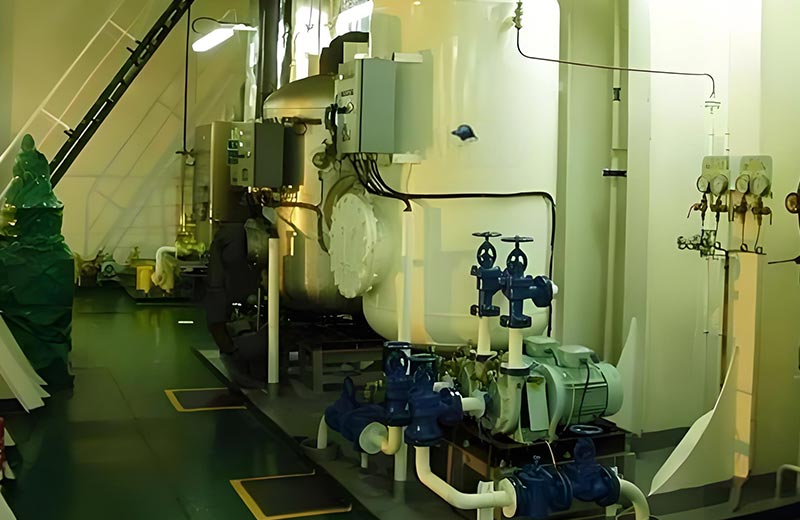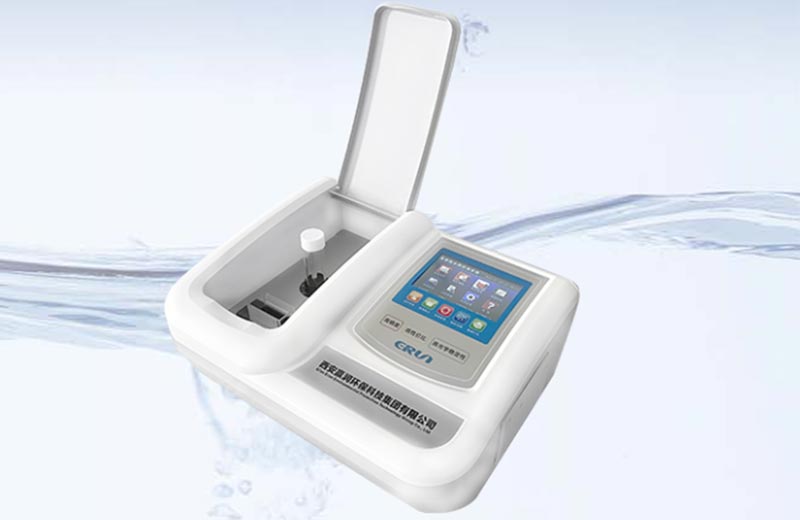The make-up water for ship's boilers usually comes from fresh water loaded on the ship or fresh water made by the ship's water maker, and according to statistics, half of the auxiliary boiler accidents are caused by water quality exceeding the standard.Therefore, regular testing of boiler water quality is an important step in maintaining the service life of the boiler and ensuring the safe operation of the ship.This article will introduce the indicators and standards for water quality testing of ship boiler auxiliary boilers.

Ship boiler water quality testing generally includes the following key indicators:
Salinity: Salinity is a measure of the amount of dissolved salts in water. When the salt content of the boiler water reaches a certain limit, the boiler evaporation surface will produce a thick layer of foam, resulting in excessive steam with water, resulting in vapor-water transpiration phenomenon.It can also bring corrosion to equipment and piping, and even cause water strikes on steam machinery, resulting in equipment damage. The normal salinity value of boiler water is usually between 50-200 mg/L.
Alkalinity: Alkalinity is a measure of the amount of alkaline material in the water. Insufficient alkalinity in boiler water will promote corrosion of boiler heating surfaces, while too strong an alkalinity will produce caustic embrittlement and even cause boiler explosions.The pH of boiler water is generally controlled between 10-12, with an alkalinity value of around 1 mmol/L (i.e. 50 ppm).
Hardness: Hardness is the amount of calcium and magnesium ions in water. These ions are prone to form scale on the heating surface of the boiler, which seriously affects the heat exchange efficiency of the boiler, increases fuel consumption, and, in severe cases, leads to tube clogging and tube burnout on the heating surface.Boiler water hardness should be strictly controlled below 0.03 mmol/L (i.e. 3 ppm).
Testing Standards:
Salinity: Normal salinity value 50-200mg/L, it is recommended to set the alarm value upper limit 250mg/L, lower limit 50mg/L.
Alkalinity: pH is controlled between 10-12, with an alkalinity value of about 1mmol/L (50ppm).
Hardness: Strictly controlled below 0.03mmol/L (3ppm).
Detection cycle:
Ship auxiliary boilers with small evaporation capacity and low working pressure, it is recommended to test the furnace water every 2-3 days, and the maximum test interval should not exceed 3 days.
Power station boiler water is recommended to be sampled on average every 2 hours and laboratory assayed by EDTA titration.
Salinity determination:
Commonly used methods include the Unido 310 boiler water salinity assay, silver nitrate titration, and fully automatic potentiometric titration.
The more accurate data, low instrumentation requirements, and simplicity of operation of the Eurydice 310 method are generally welcomed by turbine operators.
Alkalinity determination:
Commonly used methods include the Unido 310 Boiler Water-Phenolphthalein Alkaline Assay, Phenolphthalein and Methyl Orange Titration, and the Mixed Indicator Method.
The Eurydice 310 method is the simplest to operate, with low equipment requirements, and is the more commonly used method on ships today.
Hardness determination:
The commonly used method is Trilon (EDTA) titration.
Colorimetric methods can also be used for online monitoring using a water hardness analyzer.

Ship boiler auxiliary boiler water quality testing is an important part of ensuring the safe operation of ships. By regularly testing the water quality and taking appropriate treatment measures according to the test results, it can effectively reduce boiler failure and extend the service life of the boiler.When conducting water quality tests, professional testing equipment and reagents should be used, and the results should be operated and interpreted by professional technicians to ensure the accuracy and reliability of the test results.Erun environmental protection production laboratory boiler water tester, specifically for boiler water testing research and development, easy to operate, accurate value, such as the need for detailed information can be directly contact customer service.